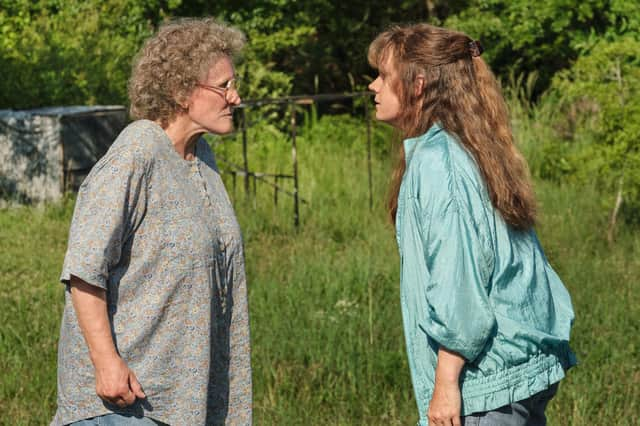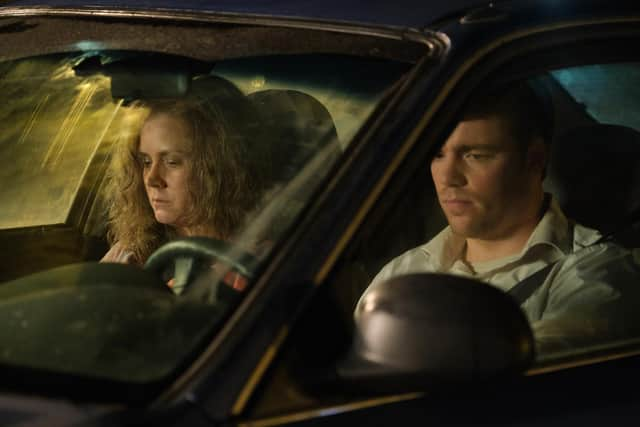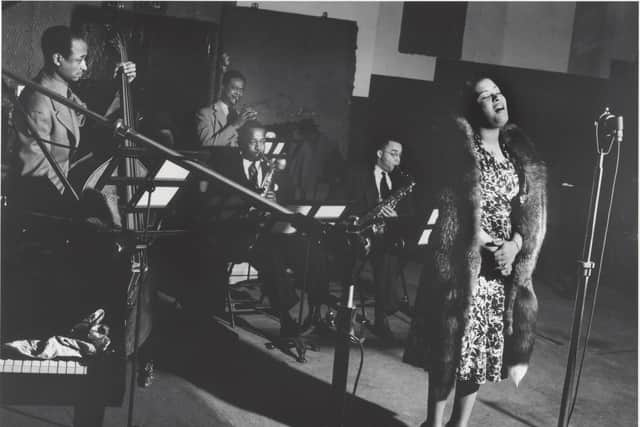Film reviews: Hillbilly Elegy | Billie


Hillbilly Elegy (12A) **
Billie (15) ****
Ron Howard’s new film Hillbilly Elegy is based on a 2016 memoir by JD Vance, whose self-improvement-inflected life-story became a bestseller just as Donald Trump’s presidential campaign was gathering steam that year by appealing to the sort of disenfranchised white working class base from which Vance hails. An ex-marine turned venture capitalist who put himself through Yale law school after surviving a childhood rife with violence and drug addiction, Vance's determination to pull himself up by his bootstraps with a bit of help from his beloved Appalachian grandmother offers Howard a chance to deliver a sincere but somewhat soft-edged film that reinforces the Horatio Alger-inspired myth that anyone can be successful in America through sheer hard work. Cutting back-and-forth between Vance’s precarious childhood and his race-against-time efforts to attend an important job interview while simultaneously trying to get his relapsing mother into a drug rehabilitation facility, the film amps up the melodrama of his life as a way of signifying the urgency with which those with no safety net are forced to live.


But if the timing of such a film seems apt in the wake of Joe Biden’s election victory pleas for unity and understanding across the political divide, Howard’s well-intentioned attempt to humanise Vance’s raucous relatives drains any life out of the story by sentimentalising their hardship. Which seems like an odd thing to say about a movie that features Amy Adams as Vance’s drug-addicted mother shooting heroin into her legs or beating the young JD for not defending her to his friends (JD is played as a kid by Owen Asztalos and as an adult by Gabriel Basso). But for all Adams’s range and proven ability to play this kind of character, Howard’s respectful but overly cautious approach to the material doesn’t let her performance come convincingly alive, certainly not in the way that her blue-collar characters did in David O Russell’s The Fighter and American Hustle. The same goes for Glenn Close. Playing JD’s "Mawmaw" beneath a thick layer of prosthetics and a tight granny perm, she might excite Oscar watchers who can’t see beyond a physical transformation, but her work here feels like showy act of mimicry, not the sort of lived-in performance that might have helped this feel like a genuine slice-of-life look at a much misunderstood side of America. File under “missed opportunity.”
Advertisement
Hide AdThe tough, tragic, remarkable life of jazz legend Billie Holiday is vividly recounted in new documentary Billie, which draws on 200 hours of never-before-heard audio interviews with bandmates, family members, friends and musical contemporaries who witnessed her tumultuous career up close. Conducted in the 1970s for a never-finished biography, the interviews – which include astonishing testimony from the likes of Count Baisie, Sylvia Syms, Charles Mingus and her producer John Hammond – present a raw and unvarnished portrait of a complicated, vivacious artist who has too often been portrayed as a victim or sentimentally packaged to appeal to mainstream audiences.
Containing stories of tremendous hardship and abuse as well as tremendous resilience and defiance, these candid interviews certainly answer the question – posed somewhat naively in the film by celebrity fan and acquaintance Tony Bennett – about why Holiday “crack[ed] up” after hitting the top. But the tapes also generate a mystery of their own. Holiday’s would-be biographer, Linda Lipnack Kuehl, a school teacher and freelance arts journalist who’d spent the best part of a decade gathering these accounts, was found dead on a street in Washington, DC in 1978 in somewhat suspicious circumstances. This immediately presents director James Erskine (who made the Billie Jean King documentary Battle of the Sexes) with an incredible hook as well as a big ethical dilemma: is it right to frame an investigation into the life of an important Black artist who significantly shaped the course of American music with a parallel investigation into the sad demise of her white biographer, especially given that Erskine’s own status as a white male filmmaker puts him at an additional remove from even Kuehl’s perspective?
The knee-jerk, social-media-ready response to this question is probably "no” – and yet it would also be odd to make a film like this without acknowledging the provenance of the tapes or, indeed, the hard work Kuehl did (the tapes reveal her to be a deft and fearless interviewer). Erskine, though, doesn’t make the mistake of giving the stories equal weight, and he’s smart enough to let the material directly and obliquely address the issue of who has the right to tell what story without simultaneously trying to justify his own involvement.


He also has one big advantage over Kuehl, whom we’re told may have failed to finish the book because she struggled to satisfactorily capture the essence of Holiday’s voice in print in a way that would do justice to her story. As a filmmaker he’s able to feature Holiday’s voice unmediated and, even though his contentious decision to colourise some of the performance footage and photographs opens up a whole other ethical can of worms, the chance to hear that voice in a film that contextualises everything she went through is, ultimately, what makes this a valuable endeavour and worth seeking out.
Hillbilly Elegy is in selected cinemas in Scotland now, and streaming on Netflix from 24 November; Billie is available on demand via iTunes and Amazon from 16 November.
A message from the Editor:
Thank you for reading this story on our website. While I have your attention, I also have an important request to make of you.
Advertisement
Hide AdThe dramatic events of 2020 are having a major impact on many of our advertisers - and consequently the revenue we receive. We are now more reliant than ever on you taking out a digital subscription to support our journalism.
To subscribe to scotsman.com and enjoy unlimited access to Scottish news and information online and on our app, visit https://www.scotsman.com/subscriptions
Joy Yates, Editorial Director